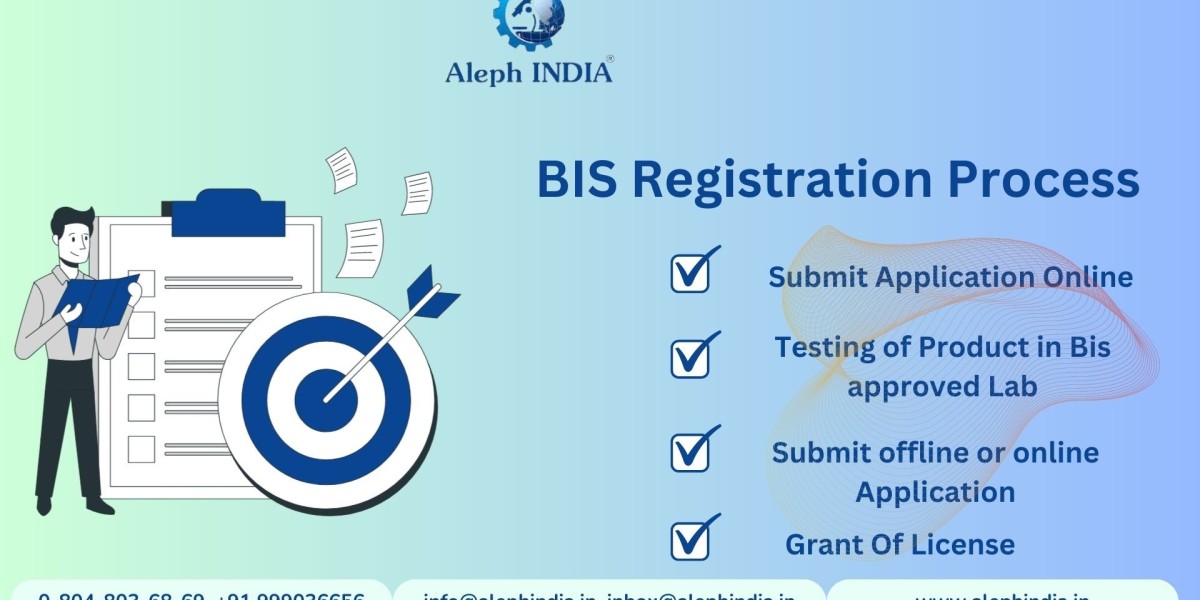In today's global marketplace, maintaining quality standards and ensuring consumer safety are paramount. The Bureau of Indian Standards (BIS), established under the BIS Act of 1986, plays a pivotal role in setting quality standards and regulations in India. BIS is responsible for formulating and implementing various practices, including standard formulation, product registration, hallmarking, monitoring, and calibration schemes. In this blog post, we will delve into the significance of BIS registration and the process involved in obtaining it.
The Importance of BIS Registration:
The primary aim of BIS registration is to protect public health, safety, and the environment by establishing and enforcing quality standards for products sold in India. BIS certification ensures that products comply with specified requirements and adhere to the relevant Indian standards. It instills confidence in consumers, assuring them that the products they purchase meet the necessary quality benchmarks. BIS registration also facilitates fair trade practices, ensuring a level playing field for both domestic and international manufacturers.
Addressing Technological Trade Barriers:
In today's globalized economy, the World Trade Organization (WTO) aims to eliminate trade barriers and promote cross-border trade. However, technological barriers can impede manufacturers from other countries in selling their goods in India. BIS registration acts as a means to overcome these barriers by providing a standardized and transparent process for product conformity assessment. By obtaining BIS registration, manufacturers from across the globe can ensure that their products meet the required standards and gain access to the Indian market.
The Process of BIS Registration:
The process of BIS registration under the Compulsory Registration Scheme involves several key steps:
Step 1: Product Testing
The first step is to submit a sample of the product to a BIS recognized testing laboratory. The laboratory conducts comprehensive tests to assess the product's compliance with the relevant Indian standards. The manufacturer is required to pay the applicable laboratory fees, which vary depending on the type of product.
Step 2: Testing and Report Generation
The testing process typically takes around 10-15 days, during which the laboratory thoroughly examines the product. Upon completion of the tests, the laboratory issues a Test Report, which outlines the product's compliance status with the applicable standards.
Step 3: Application Submission
After obtaining the Test Report, the manufacturer needs to submit the BIS application form, along with the necessary documents, through the BIS portal. It is essential to ensure that all the required information is accurately provided. The manufacturer may also be contacted via email by a BIS staff member if there are any queries or additional information required.
Step 4: Application Scrutiny and License Granting
Upon receiving the application, BIS scrutinizes the form, documents, and Test Report. BIS ensures that all the requirements are met and that the product conforms to the relevant standards. Once the scrutiny process is complete and the product is found compliant, BIS grants the BIS license to the manufacturer. This license serves as evidence of the product's conformity to the specified standards and allows the manufacturer to use the BIS Standard Mark.
Conclusion:
The Bureau of Indian Standards (BIS) plays a vital role in ensuring quality, safety, and consumer protection in India. BIS registration serves as a mark of conformity to Indian standards, instilling confidence in consumers and facilitating fair trade practices. By following the BIS registration process, manufacturers can demonstrate their commitment to quality and gain access to the vast Indian market. BIS continues to be at the forefront of standardization and regulation, fostering a culture of excellence and safeguarding public health and safety.








